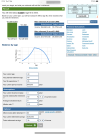lemonadefishing
New Member
- Messages
- 1
I am currently 40 years old. I would like to retire as soon as I possibly can. I have a mortgage that should be paid off in the next 10-12 years so I don't expect to retire before then. I currently have ~200k in my pension and contribute 3k p/m between my own and employer contributions. A compound interest calculator tells me this should have me at about 2m in the pension by the time I'm ~60, it sounds like that would be sufficient but ideally I'd like to retire before 60 if it is feasible.
Where I am confused is when it comes to taking an ARF vs an annuity. My understanding is with an ARF you keep your pension invested and draw down a certain % of it each year (I think I've read 4-5% per year?). Basically I am wondering how you can generally tell you have enough to retire on? Is there a calculator you can plug these figures into, if I have X in my pension pot, draw down Y% per year, but expect growth of Z% on an ARF? I have googled it but haven't found anything, hence the thread. Is it worth going to a financial or pensions advisor? I don't know enough about pensions to know how to approach this but would like to have a target in my head for retirement, thanks.
Where I am confused is when it comes to taking an ARF vs an annuity. My understanding is with an ARF you keep your pension invested and draw down a certain % of it each year (I think I've read 4-5% per year?). Basically I am wondering how you can generally tell you have enough to retire on? Is there a calculator you can plug these figures into, if I have X in my pension pot, draw down Y% per year, but expect growth of Z% on an ARF? I have googled it but haven't found anything, hence the thread. Is it worth going to a financial or pensions advisor? I don't know enough about pensions to know how to approach this but would like to have a target in my head for retirement, thanks.
